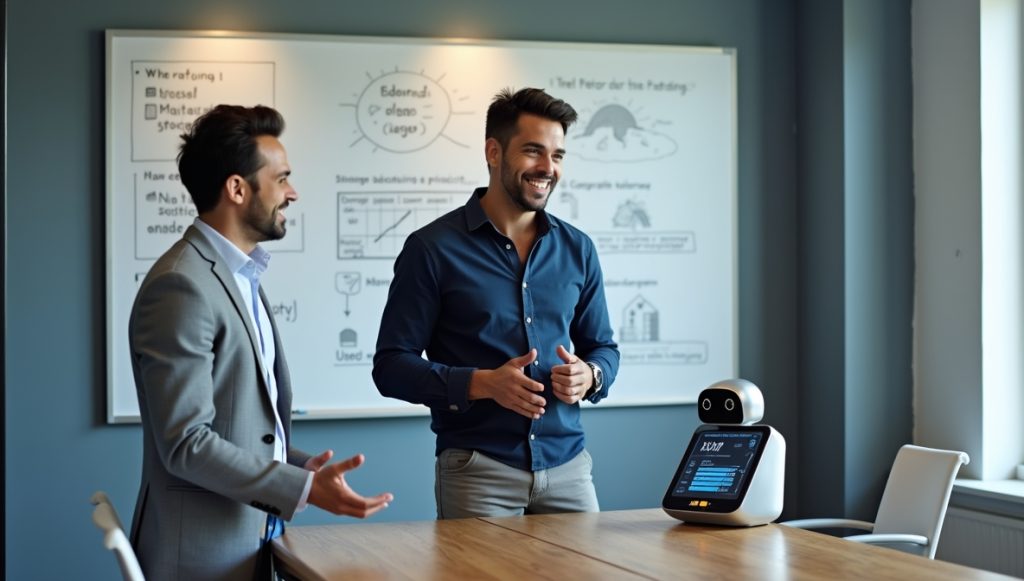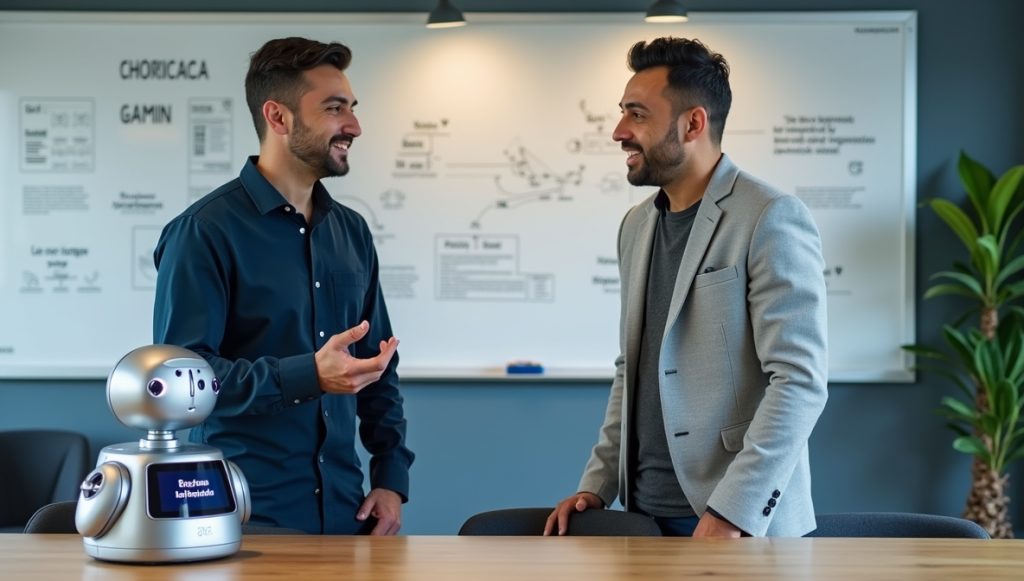When people seek personal or professional growth, they often look for mentors and guides who can help them identify blind spots, unlock hidden potential, and navigate challenges with clarity. In recent years, one name that has resonated strongly with both professionals and individuals seeking transformation is pedro vaz paulo coaching. Known for its deep, personalized approach and results-driven strategies, this coaching method has attracted attention from entrepreneurs, executives, creatives, and everyday individuals who wish to elevate their lives.
This in-depth exploration takes you through the philosophy, techniques, and transformative power of the coaching process associated with Pedro Vaz Paulo, showing how it moves far beyond the surface level into profound and lasting personal change.
Understanding the Core Philosophy of Coaching
At its heart, coaching is about partnership. It is not about dictating solutions but about enabling the client to arrive at their own answers with guidance and encouragement. The style associated with Pedro Vaz Paulo places heavy emphasis on trust, active listening, and strategic questioning. It’s not merely motivational speech—it’s about creating an environment where the client feels safe to explore weaknesses while also being encouraged to maximize strengths.
Coaching sessions are often described as part science, part art. The science lies in proven frameworks, psychological principles, and structured goal-setting techniques. The art is in reading between the lines, sensing the emotional undercurrents, and helping people articulate feelings they may have buried for years pedro vaz paulo business consultant.
The Rising Need for Personalized Coaching in Modern Times

In today’s fast-paced and high-pressure world, stress, burnout, and decision fatigue are common. Professionals and leaders often have the skills to succeed but lack clarity or emotional resilience to sustain success. This is where targeted coaching steps in, offering a space for reflection, recalibration, and strategic action.
The approach similar to pedro vaz paulo coaching recognizes that no two clients are the same. This means avoiding cookie-cutter advice and instead focusing on customized roadmaps that take into account an individual’s values, long-term goals, and personal history. It’s a tailored process that respects both the challenges and aspirations unique to each client.
From Goal Setting to Goal Achieving
One of the main reasons people invest in coaching is to close the gap between intention and action. Many people know what they want—they just don’t follow through. A coach helps to bridge that gap.
The process starts with clarifying the goal. This may sound obvious, but often what people state as their goal is vague or rooted in what others expect of them. A skilled coach reframes these aspirations, stripping away external pressures until the client’s authentic desires emerge.
Once the goal is clearly defined, actionable steps are outlined. Each step is measurable, realistic, and aligned with the client’s lifestyle. This ensures progress can be tracked and celebrated.
Building Emotional Resilience
While strategy is important, a huge part of coaching involves developing mental and emotional tools to face setbacks. The reality is, no matter how perfect a plan is, life will always introduce unpredictability. Emotional resilience—the ability to bounce back from challenges—is therefore critical.
Coaching sessions often include reframing techniques, mindfulness practices, and exercises to strengthen emotional intelligence. These help clients remain centered even in the midst of chaos. This approach ensures that they are not only achieving goals but also growing as individuals who can adapt and thrive.
The Power of Accountability
One of the most underestimated aspects of coaching is accountability. Left to our own devices, many of us let deadlines slip or avoid uncomfortable tasks. Having a coach means having someone who checks in, not in a judgmental way, but in a manner that keeps momentum alive.
This gentle but firm accountability is a cornerstone of successful outcomes. It creates a rhythm of consistent effort, which over time compounds into remarkable results.
A Holistic Approach to Growth
Unlike purely career-focused guidance, this style of coaching takes a holistic view. Success in one area often depends on balance in others. For example, someone who is excelling at work but neglecting health or relationships will eventually feel unfulfilled or face burnout.
Therefore, the sessions might touch on:
- Professional development
- Health and wellness habits
- Time management
- Communication and relationship skills
- Stress reduction techniques
By weaving these areas together, clients build sustainable success, rather than short-lived wins.
The Client-Coach Relationship
A unique feature of high-level coaching is the bond between the client and coach. This is not a friendship, though it is warm and supportive. It is also not therapy, though it can be deeply therapeutic. The relationship is built on mutual respect, confidentiality, and shared commitment to the client’s growth.
Clients often describe feeling truly “seen” in a coaching session—a rare experience in a world where conversations can be rushed and superficial. This sense of being understood is powerful; it fuels the motivation to take bold steps toward one’s aspirations.
Success Stories and Real-Life Transformations
Across industries and backgrounds, those who have undergone pedro vaz paulo coaching report tangible results:
- Entrepreneurs who found the clarity to pivot their business model and achieve profitability
- Leaders who learned how to inspire teams without micromanaging
- Professionals who negotiated better salaries after building confidence
- Individuals who developed healthier work-life boundaries and saw improvements in personal relationships
These are not overnight changes—they are the result of steady, intentional progress nurtured by expert guidance.
The Mindset Shift
A significant transformation that clients experience is a mindset shift. They move from a reactive approach—constantly putting out fires—to a proactive one where they anticipate challenges and act with purpose.
This change doesn’t happen by accident. Through consistent dialogue, exercises, and reflection, a coach challenges limiting beliefs and replaces them with empowering ones. Over time, this creates a new default mode of thinking that supports success in every area of life.
Why This Coaching Approach Stands Out
What makes this methodology different is its depth. While some coaching programs lean heavily on cheerleading and motivation, the style behind pedro vaz paulo coaching blends emotional intelligence, strategic planning, and behavioral science. This combination makes it effective for both short-term wins and long-term transformation.
It also embraces adaptability. Life circumstances change—markets shift, personal priorities evolve—and coaching adapts along with them. This ensures the process remains relevant and valuable through all stages of a client’s journey.
The Ripple Effect of Personal Growth
When an individual improves, it often has a ripple effect. Leaders inspire their teams. Parents model healthier behaviors for children. Friends notice the positive changes and become curious about their own potential.
This is one of the most rewarding outcomes of coaching—it not only transforms the client’s life but also positively influences those around them.
Overcoming Resistance
Not everyone jumps into coaching with full enthusiasm. Some approach it with skepticism, unsure if it will deliver results. It’s natural to feel guarded at first, especially if past experiences with self-improvement programs were disappointing.
However, the personalized, client-centered nature of this approach quickly builds trust. As the first small wins appear, resistance often fades, replaced by excitement about what’s possible.
Continuous Learning and Growth
Coaching isn’t a one-time event; it’s an evolving process. Even after initial goals are achieved, many clients choose to continue sessions to explore new ambitions or maintain momentum.
The tools and techniques learned remain valuable long after the formal coaching relationship ends. Skills like self-reflection, goal-setting, and effective communication become part of the client’s everyday life.
The Role of Self-Discovery

A surprising outcome for many is the extent of self-discovery that happens during the process. Clients often uncover strengths they never recognized, as well as patterns of behavior that were quietly holding them back.
This self-awareness becomes the foundation for lasting change. Once people see themselves clearly, they can make deliberate choices rather than being driven by old habits.
Looking Ahead
As the coaching industry grows, so does the demand for approaches that are deeply personalized, adaptable, and results-oriented. The blend of strategy, empathy, and accountability seen in pedro vaz paulo coaching represents a model that meets this demand effectively.
Whether someone seeks career advancement, personal fulfillment, or a complete life redesign, the right coaching relationship can be the catalyst that turns potential into reality.



